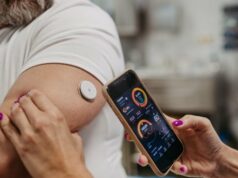
Analysis of the use of emojis in tweets has revealed that people are generally more positive when talking about type 1 diabetes on Twitter than they are when discussing type 2 diabetes.
Researchers at the Norwegian Centre for E-Health Research studied the use of emojis in more than 67,000 tweets from a week in May 2018 to investigate feelings around diabetes on social media.
The study, known as ‘sentiment analysis’, looked at emoji use in anonymized posts from healthcare professionals, people with diabetes and their relatives which contained the terms ‘diabetes’, ‘t1d’ or ‘t2d’.
The research used an algorithm to identify, quantify and study emotions and subjective information in natural language. The software classified the words and emojis into either positive or negative categories.
Positive tweets contained three words such as ‘congratulate’, ‘joy’ or ‘happiness’ or emojis such as the smiley, the clapping hands or the heart sign.
Words like ‘hate’, ‘no’ or ‘never’, or angry face emojis, saw the tweet classed as negative.
The researchers saw noticeable differences in how people reacted to type 1 diabetes and type 2 diabetes. Tweets related to type 1 diabetes were more positive while type 2 diabetes was associated with more negative posts.
Researcher Elia Gabarron said: “For ethical reasons, we do not know whether there are health personnel, relatives or patients who express themselves positively or negatively, depending on the type of diabetes involved.
“For example, we do not know if patients with type 1 are trying to encourage each other more, and therefore we see many positive twitter messages. Or why we find more negative attitudes about type 2 diabetes.”
Emoji analysis is an emerging tool in health research but indications are that it could be useful to understand how a simple smiley can make a situation more positive, and that it’s contagious.
Gabarron added: “If you write something negative with a smile emoticon, it becomes more positive. It is like when everyone around you is feeling down, you will too. The same happens on social media. When many use positive emojis in the discussion of an illness, more people will be in a better mood.”
The findings have been published in the Journal of Diabetes Science and Technology.








